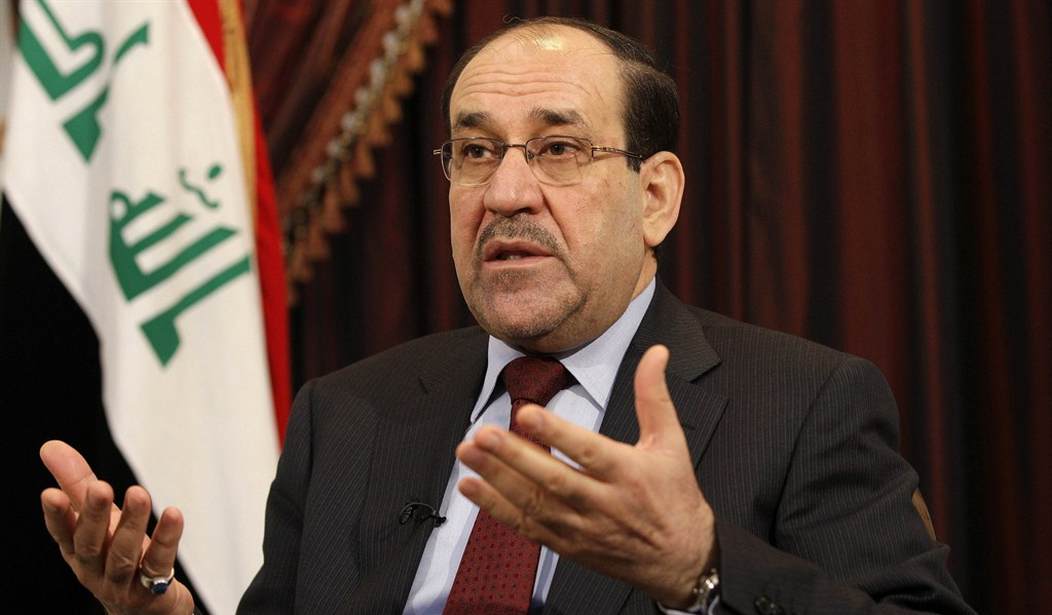The Islamic State of Iraq and the Levant's bloody media foray into northern Iraq adds another international dimension to Syria's thoroughly internationalized civil war.
It is also a direct political challenge to the Obama administration, one so stark that unless the Administration acts decisively, nations world wide that rely on U.S. security support will severely question American reliability.
"Media foray" is more apt than invasion, but first internationalization.
Iran and Russia internationalized Syria's civil war to save their own brutal cliques. Arab Spring threatened authoritarians everywhere. Tunisia's crony state fell quickly. Egypt's oligarchy buckled. Libya's dictator faced NATO-supported rebels. So Tehran and Moscow rushed to the aid of their Syrian client. Syria would be the dictators' political firebreak where repression succeeded.
By fall 2011 Syria had become a war of attrition, politically and militarily, and it stayed that way until August 2013.
U.S. president Barack Obama told the Assad regime that attacking the Syrian populace with chemical weapons constituted a "red line." Like, bad stuff would happen if Assad used gas. On August 21, 2013, Assad's forces murdered over 1,000 civilians with a rocket-delivered nerve-gas attack. The Obama administration responded with ... dithering.
Sunni militants opposed to the Assad regime established bases in eastern Syria. Syria's chaos, the porosity of a desert border and the Iraqi state's unbridled cronyism provided ISIL with an opportunity to re-energize extreme Sunni Islamist militants dismayed by Osama bin Laden's departure from planet Earth. Hey, that is the propaganda pitch. Eastern Syria and western Iraq will be the core of the ISIL's new Global Caliphate. In 2001, bin Laden's caliphate core began in Afghanistan. Bin Laden is dead, but the grandiose utopian promise of a religious cure for cultural fossilization and political failure seduces the vulnerable souls of too many alienated (and young) Muslim men.
Recommended
Though it damns 12 years of calculated Obama "political optics," Dick Cheney and Donald Rumsfeld were right when they said defeating militant Islamism would be a very long struggle that had to be sustained by action.
The strategic goal of ISIL's Iraq media foray is global headlines that magnify ISIL's power and question international resolve (especially U.S. resolve) to confront the jihadi challenge. If it sounds like 9/11's media goal, well, it is.
Strategypage.com called ISIL's attack "a mile-wide and an inch deep." Why? "Right now the local support for ISIL is just not there," Strategy Page reported June 16, though "the Islamic radicalism that created centuries of Islamic terrorism survives."
Bin Laden's al-Qaida was an information power; it could not win on the battlefield. ISIL does not have the fighters to sustain attrition battles with Iraqi forces. Bribes to crooked military and police officers have spurred its successes. Sunni Arab tribes in Iraq's Anbar Province have legitimate grievances with Nouri al-Maliki's crony-ridden Baghdad government, but Strategy Page argued their support for ISIL's internationalists is tepid.
The U.S. is the necessary actor; the ISIL knows it, even if the Obama administration doesn't.
The U.S. can meet ISIL's challenge by returning to 2010. In 2010, the Iraqi security forces, supported and mentored by the U.S., had inflicted a military and political defeat on the various Sunni terror groups and Iranian-backed Shia militant militias that had attacked their nation.
In February 2010, on "Larry King Live" no less, a grinning Vice President Joe Biden proclaimed that Iraq "could be one of the great achievements of this administration." Wow. Less than three years after Sen. Harry Reid (D., Global Caliphate.) declared the war lost, and less than three years after then-Sen. Barack Obama -- with his usual fierce moral urgency -- opposed the Bush administration's military surge, Obama's veep takes credit for victory. Hey, doubters -- check the videotape.
At the strategic level, the U.S. and Iraq must negotiate a new Status of Forces Agreement. To stabilize, Iraqis need confidence; a long-term U.S. security presence inspires confidence.
At the military operational level: Iraqi forces need U.S. airpower, now. They need U.S. special operations forces teams to coordinate air strikes and tap U.S. intelligence assets.

























Join the conversation as a VIP Member